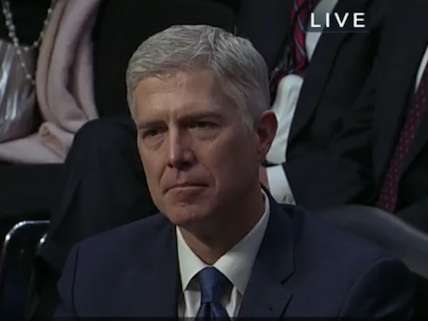Neil Gorsuch Vows to 'Respect' Supreme Court Precedent. That Does Not Mean He Will Always Uphold Precedent.
Understanding the SCOTUS nominee's answers to the Senate Judiciary Committee.

Neil Gorsuch has survived his confirmation hearings before the Senate Judiciary Committee and now, barring some unforeseen (and unlikely) disaster, he is well on his way to being confirmed as the next associate justice of the United States Supreme Court.
Gorsuch was interrogated for two full days by the 11 Republicans and nine Democrats of the Senate Judiciary Committee. Regrettably, just like most other recent SCOTUS nominees, Gorsuch mostly dodged the biggest questions, refusing to express his own legal views on most subjects that might conceivably come before him as a judge, including the propriety of various Supreme Court precedents.
What that meant was that almost every time that Gorsuch was asked about a hot-button legal issue—such as the constitutionality of abortion or the legality of gay marriage—he fell back on the same well-rehearsed answer. That issue has been decided by a "precedent of the Supreme Court," Gorsuch said again and again, and was therefore "due all the weight of a precedent of the Supreme Court."
What does that mean? Consider the 2009 Senate confirmation hearings of Sonia Sotomayor. She too was repeatedly asked about hot-button legal issues, particularly when it came to her views on the Supreme Court's 2008 Second Amendment decision in District of Columbia v. Heller. And her answers were also consistent. Heller is an "established" Supreme Court precedent, Sotomayor repeatedly told the Senate Judiciary Committee, and she "accepted" it.
Fast-forward one year later to the case of McDonald v. City of Chicago. Sotomayor is now a sitting justice of the Supreme Court and she joined the dissenting opinion filed in that case by Justice Stephen Breyer, in which Breyer asserted that "the Framers did not write the Second Amendment in order to protect a private right of armed self-defense." That statement is the exact opposite of what the Court held in Heller.
In sum, giving "weight" or "respect" or "acceptance" to "established" precedent is not the same thing as upholding and affirming that precedent. As Neil Gorsuch himself noted this week, the law of precedent has always included the option of overturning precedent in an appropriate case.
